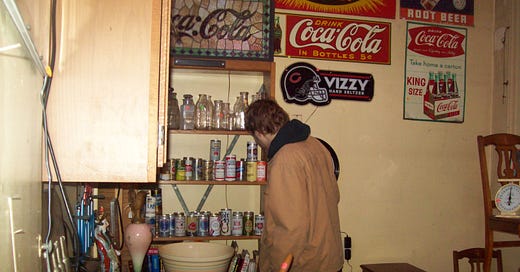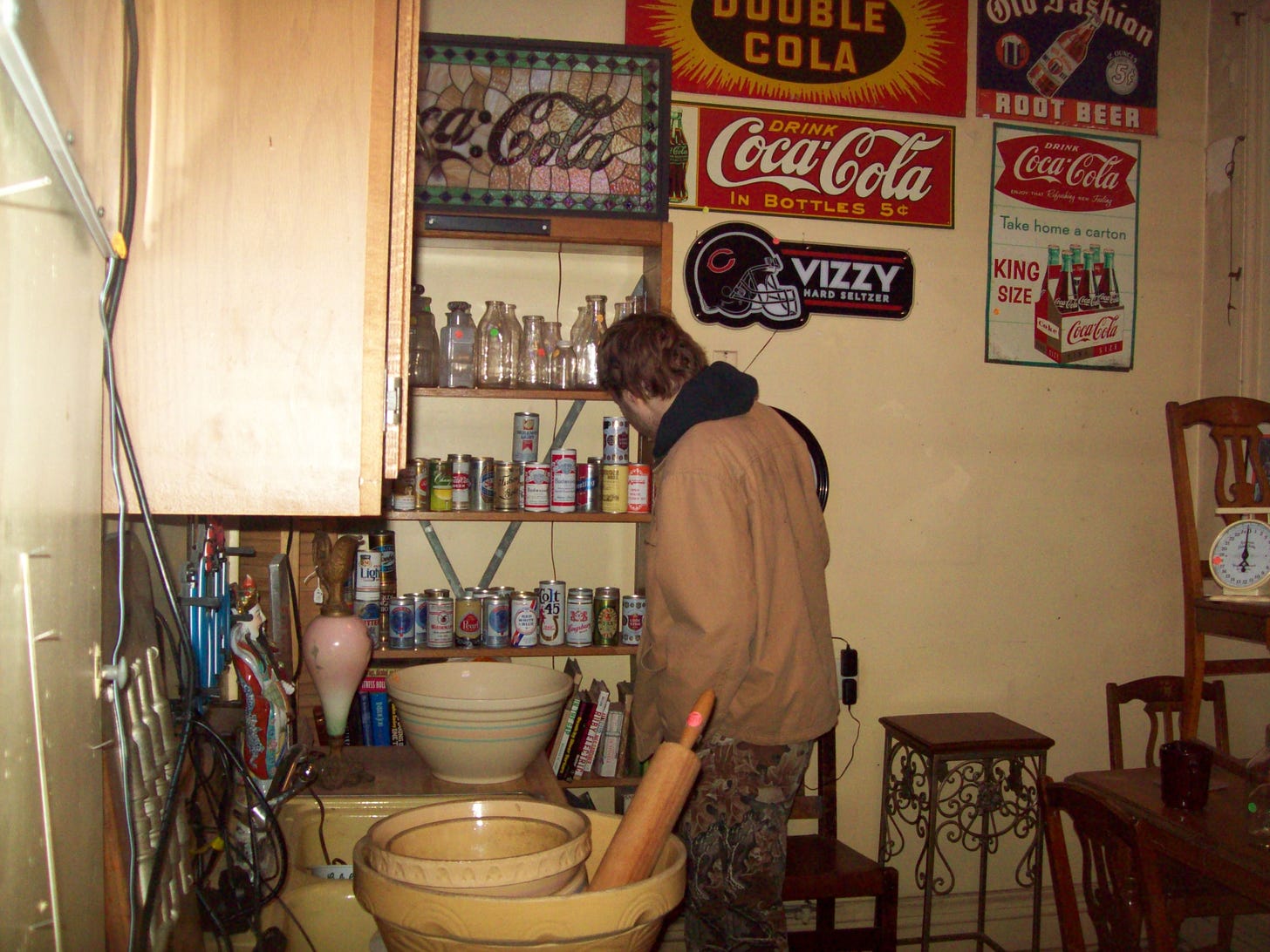In hopes of catching the disease, I often practiced spotting the wild curiosities that might make Ian smile. Something like a cloud mid-dance, or a car with an expressive face, or a scatter-brained hummingbird. Something that thudded with a queer, distinctly-living pulse. You see, Ian’s mind was tuned to a different station. His eyes lingered on mundanities that most people never noticed. If you stood close enough to watch him breathe, you’d overhear the faint wheeze of a world tinted by joy.
Ian’s hair was the shade of a coastal sunset and his smile reeked of citrus, mint leaves, and marijuana. I often wondered what colors he saw the world in. What futures he could envision with that spectrum. What universes lay hidden in his mind. He was slim and lanky in the way that Gen Z women tended to adore, but his height never felt oppressive because he always looked people in the eyes. His skin was that shade of white that you could tell tanned instead of burned and he carried with him a European repose that hinted at a secret adoration for the Lost Generation.
We met at Delilah’s—a dingy, retired punk bar in Lincoln Park where beers cost one dollar, and twenty year olds salivate at the opportunity to make bad decisions. He was sat at a corner booth with his roommate and was pretty enough to talk to, so a friend and I sat with him. One of the first questions he ever asked me was if I was dominant or submissive in bed. His eyes glittered when he spoke. That’s how I knew we’d be good friends.
Ian was the closest person I knew to be a modern day Beat. He drifted in and out of Chicago like a leaf in the wind and never stayed in the city long enough to endure a snowstorm. Every time he drifted back—whether it be from his girlfriend’s place in Amsterdam, a sublet in Paris, or a stranger’s couch in Berlin—he’d land for a night or two in my apartment and we’d rehash some conversation about longing to be a part of something.
“I want to gather people. Get ‘em in a space and just talk about ideas.”
Like most people our age, he longed for a third space. One where drinking wasn’t requisite and conversations felt momentous. He looked at my writing, and Griff’s writing, and Frank’s music, and Jess’s textiles as if we were puzzle pieces that formed a generation. As if our words might weave a legacy worth looking back on.
I never quite knew how to let him down. To tell him that I didn’t believe we were a part of anything. That poems were just poems and essays were just essays and art was just art and we were all just doing our best to stay alive.
Whenever Ian hitchhiked away, it was impossible not to feel inspired. Not to feel important. As soon as he’d leave my front door, I’d open up my journal and scribble down words that made pen ink feel holy. He was unpretentious. The kind of man people modeled their aesthetics off of on Pinterest. He ate fresh fruit, smoked hand-rolled cigarettes, kept his plants alive, and told captivating campfire stories. All his dogs were handicapped. There was a bicycle in his trunk. Clear skin, black coffee, Warby Parker, lively dancer—everything about him was so deceptively coastal—patchwork tattoos, New Yorker tote bag, Bantam classic in the backpocket, broken French, always fun on all the drugs. Ian was one of those men you knew would never die.
Sometimes, in our fleeting exchanges, I found myself holding my breath. Afraid that if I spoke, my words might disturb his optimism. Next to him, I often felt craggy, jagged, and bumbling—like a boulder on the verge of toppling into a lake, afraid it might shatter its rainbow.
In those subtle moments, he always noticed I was off. He’d stare at me inquisitively, as if he could feel the breaths I withheld from the universe.
“Are you good?”
I’d nod, and after a moment or two he’d make a simple observation about the clouds in the sky, or the texture of the ground, or the blunders of human communication. A bumblebee would float by and the trees would sway. He’d make a comment about the scent of Parisian pastries and ask me if anything was new. In those moments, I often wondered what colors he saw when he looked at me.
He FaceTimed me from Paris once and asked if I had ever seen a missing bird poster. I didn’t know what he meant. He said, when he walked through the streets, he noticed an alarming amount of flyers with pictures of lost birds.
“A missing dog or cat poster. That makes sense. But. Hmm. A missing bird? There’s something kind of beautiful about a person printing out posters of a missing bird and hanging them around town. A bird, I mean. It flies away. These people must know that. Those birds are gone. They’re not coming back. But. These people are persistent. There are so many flyers. They have so much hope. It’s beautiful.”
Whatever station Ian’s mind was tuned to. Whatever melody he heard as he strolled through the day. It was something like a giggle in a classroom. A seashell’s echo of the ocean. Or the buzz of summer’s first cicada. That song you love, but can never remember the lyrics to. A sneeze you secretly hope is contagious. The beating wings of a bird you’re certain will return.



you paint someone enigmatic yet vividly human.
autism has never been this romantic
"I never quite knew how to let him down. To tell him that I didn’t believe we were a part of anything. That poems were just poems and essays were just essays and art was just art and we were all just doing our best to stay alive."
And now here you are, definitely a part of something.